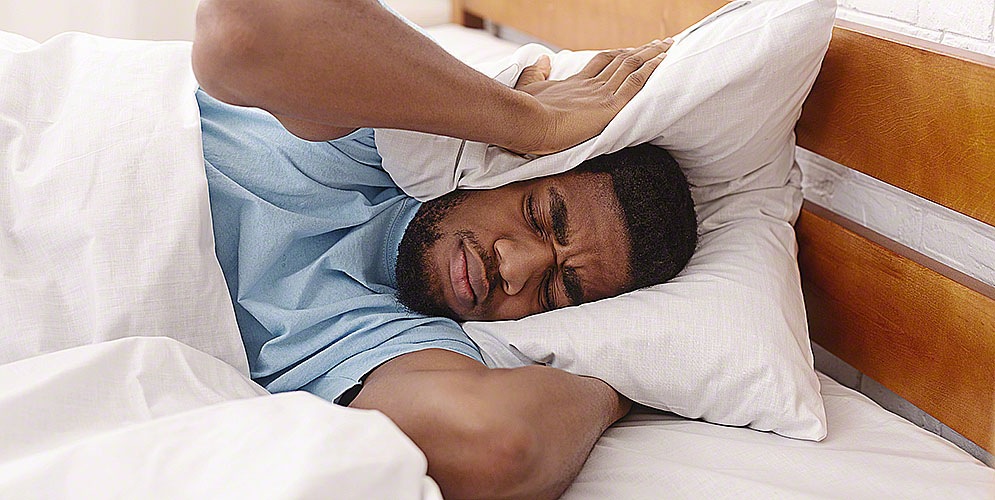
The Silent Struggle: Unveiling the Truth about Sleep Apnea
Sleep apnea is a collective yet frequently undiagnosed sleep disorder that disturbs millions of people worldwide. It is considered by pauses in conscious or shallow breaths during sleep, leading to disrupted sleep patterns and inadequate oxygen intake. These breathing interruptions, known as apneas, can last a few seconds to a minute and occur multiple times throughout the night. Sleep apnea can have a noteworthy impact on an individual’s quality of life, leading to daytime fatigue, cognitive impairment, and even serious health complications if left untreated if you don’t visit a sleep clinic Urbana.
Common Symptoms of Sleep Apnea
Sleep apnea manifests itself through various symptoms, some of which can be easily overlooked or attributed to other causes. The most collective signs of sleep apnea include loud and chronic snoring, gasping or choking during sleep, excessive daytime sleepiness or fatigue, morning headaches, difficulty concentrating, irritability, and restless sleep. It is important to recognize these symptoms and seek medical attention if they persist, as untreated sleep apnea can have grave consequences on one’s health and well-being.
Causes and Risk Factors of Sleep Apnea
Sleep apnea can happen due to multiple issues, including anatomical abnormalities, medical conditions, and lifestyle choices. The most prevalent type of sleep apnea is disruptive sleep apnea (OSA), which is caused by a physical blockage of the airway during sleep. This blockage can be a result of excess weight or obesity, enlarged tonsils or adenoids, nasal congestion, or a naturally narrow throat. Other risk factors for sleep apnea include the existence of male, being over the age of 40, having a family history of the condition, smoking, alcohol or sedative use, and positive medical conditions such as high blood pressure, diabetes, or heart disorders.
Diagnosing Sleep Apnea
Proper diagnosis of sleep apnea is essential for effective treatment. If you suspect that you or a loved one may have sleep apnea, it is important to consult with a healthcare professional who specializes in sleep disorders. The diagnosis usually involves a comprehensive evaluation, which may include a sleep study or polysomnography, where various parameters such as brain waves, heart rate, breathing patterns, and oxygen levels are monitored during sleep. This diagnostic process helps to determine the severity of sleep apnea and guides the appropriate treatment plan.
Treatment Options for Sleep Apnea
Luckily, sleep apnea is a highly curable condition, and several options are available to alleviate its symptoms and improve sleep quality. The most common action for sleep apnea is incessant positive airway pressure (CPAP) therapy. This mask is connected to a machine that delivers a continuous flow of air pressure, keeping the airway open and preventing apneas. Other treatment options may include oral appliances that help to reposition the jaw and tongue, surgery to correct anatomical abnormalities, and lifestyle modifications such as weight loss, regular exercise, and avoiding alcohol and sedatives before bedtime.
Lifestyle Changes to Manage Sleep Apnea
In addition to medical actions, certain lifestyle changes can importantly contribute to managing sleep apnea and improving overall sleep quality. Upholding a healthy weight is crucial, as excess weight can increase the risk and severity of sleep apnea. Regular exercise not only aids in weight running but also strengthens the muscles involved in breathing. Avoiding alcohol and sedatives, especially before bedtime, can help avert the lessening of the throat muscles, which can contribute to airway blockage. Establishing a consistent sleep schedule, creating a contented sleep environment, and practicing lessening techniques before bed can also promote better sleep.
Tips for Better Sleep with Sleep Apnea
Living with sleep apnea can be challenging, but there are several strategies that can help individuals improve the quality of their sleep. Elevating the head of the bed by using a specialized pillow or adjustable bed can help keep the airway open and reduce apneas during sleep. Sleeping on the side instead of the back can also prevent the collapse of the airway. Using a humidifier in the bedroom can alleviate dryness and congestion, making it easier to breathe. Regularly cleaning and replacing CPAP equipment, such as the mask and filters, is essential to ensure optimal therapy. Lastly, practicing good sleep hygiene, such as avoiding electronic devices before bed and creating a relaxing bedtime routine, can contribute to better sleep with sleep apnea.
Sleep Apnea and Its Impact on Overall Health
Sleep apnea not only affects sleep quality but can also have significant implications for overall health. Untreated sleep apnea has been associated with an increased risk of developing or worsening conditions such as high blood pressure, heart disease, stroke, type 2 diabetes, and obesity. It can also contribute to cognitive impairment, memory problems, and mood disorders such as depression and anxiety. Recognizing the impact of sleep apnea on overall health underscores the importance of early detection and appropriate treatment to minimize these health risks.
Support and Possessions for Persons with Sleep Apnea
Living with sleep apnea can be overwhelming, but there are numerous resources and support networks available to help individuals cope with the condition. Local sleep clinics and healthcare providers specializing in sleep disorders can provide valuable guidance and treatment options. Online communities and support groups offer a platform for individuals to connect with others who share similar experiences, providing a sense of belonging and emotional support. Additionally, educational materials, books, and websites dedicated to sleep apnea provide comprehensive information and practical tips for managing the condition.
Conclusion: Seeking Help for Sleep Apnea
Sleep apnea is a silent struggle that affects millions of people worldwide. Understanding the symptoms, causes, and available treatment choices is crucial for early uncovering and effective supervision of this sleep disorder or it is better to visit a sleep center silver spring. By seeking medical attention, making lifestyle changes, and utilizing the resources and support networks available, individuals with sleep apnea can reclaim restful sleep, improve their overall health, and enhance their quality of life. Don’t let sleep apnea go unnoticed; take the first step towards better sleep and well-being today.
